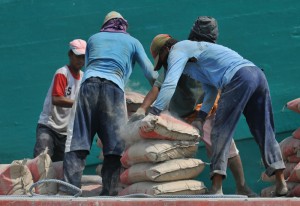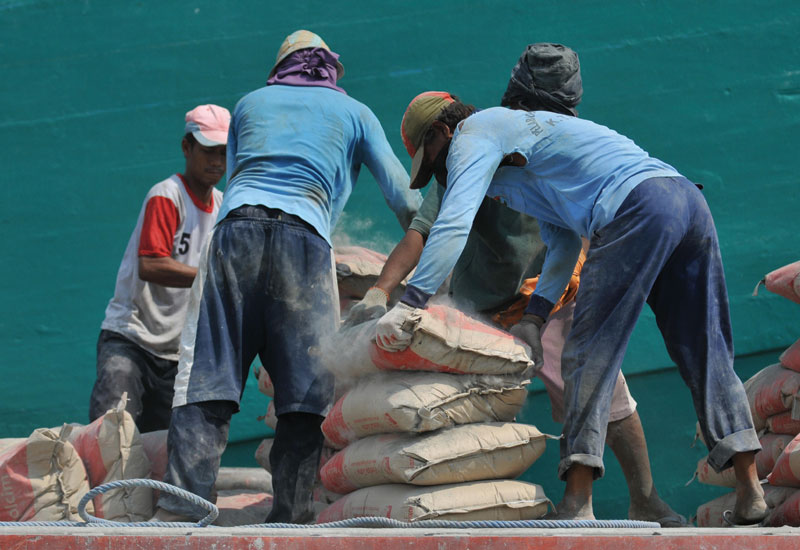
(AFP File Photo)
By Doaa Farid
Cement factories have reduced distribution and cut production by an average of 24% on the back of low and intermittent natural gas supply, according to Titan Cement Company’s executive vice president, Medhat Stephanos.
Stephanos added that the company was in touch with the Ministries of Petroleum, Industry and Environment to find means of boosting energy supply.
“We have already submitted possible solutions to Supreme Council of Energy which they will review and take the proper decisions,” he said. Proposals included using “clean energy such as coal,” and refining solid and agriculture waste to make it usable as an alternative source of energy.
Meanwhile, Hossam Arafat, chairman of the division of petroleum products at the Federation of Egyptian Chambers of Commerce, pointed out that using clean energy instead of gas would require additional investments and renovations for the factories themselves.
Arafat said, however, cement companies have the financial ability to carry out this solution but they may face barriers in adjusting their environmental positions.
Stephanos stated that if the current situation persisted, they will be forced to raise the prices of cement or import the necessary supplies. “But as of now, consumption is nearly equal to production,” he said.
Earlier in September, the government issued a decision requiring energy-intensive factories to meet a portion of their needs using solar and wind power. This decision came during a meeting held by the High Energy Committee attended by Prime Minister Hazem El-Beblawi.
Minister of Electricity Ahmed Imam said the decision would seek to have energy-intensive factories meet 50% of their needs using new and renewable energy sources, specifically wind energy factories funded through the private sector, capable of producing 970 megawatts of energy.
The ministry further stated that it hoped that by 2020, 20% of Egypt’s energy needs would be met through renewable sources, with kilowatt per hour prices to be determined by the Egyptian Electric Utility and Consumer Protection Regulatory Agency. The decision is expected to take effect by the beginning of 2015.
Already more than 40 international and domestic investors have expressed their interest in the tenders for the six wind energy projects, each one capable of producing 100 megawatts of energy. The projects will be implemented in the Gulf of Suez region.
Despite Egypt’s ailing economy, construction companies registered profits; Suez Cement Company, for example, witnessed a climb in its net sales during the first quarter of 2013. The company’s net profit during the first quarter was EGP 221mn, a 56.3% jump compared to the EGP 141mn profits made in the first quarter of 2012.
The company added that this marks a 3% surge from pre-revolution levels.
In its official report, the company stated that the energy situation is expected to remain clouded by a growing supply shortage, which is likely to affect cement production.



